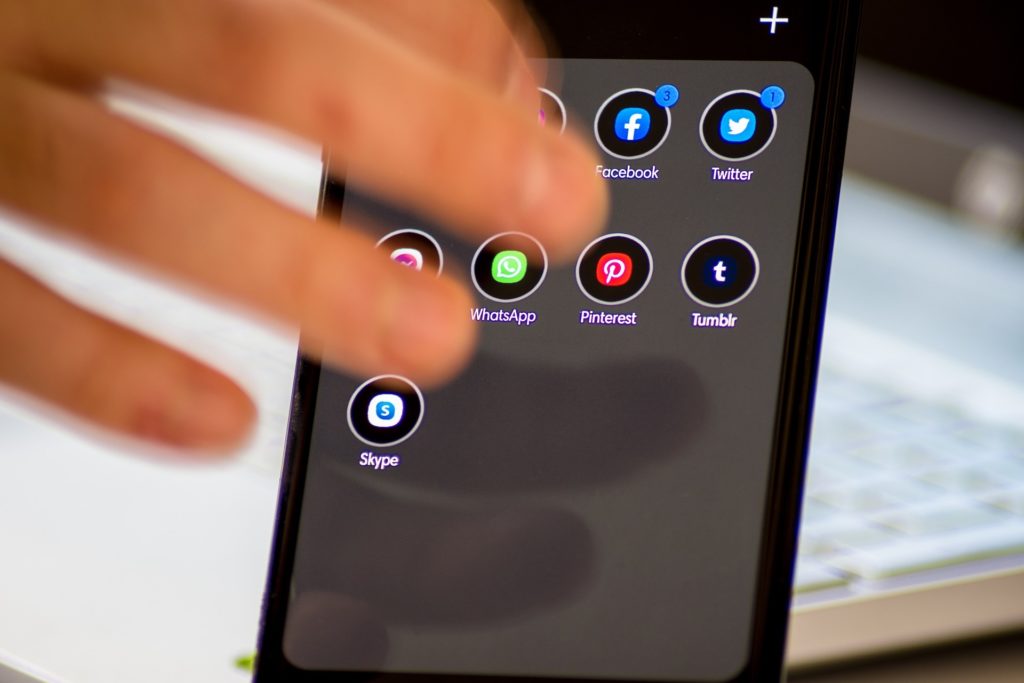- Calls to this hotline are currently being directed to Within Health or Eating Disorder Solutions
- Representatives are standing by 24/7 to help answer your questions
- All calls are confidential and HIPAA compliant
- There is no obligation or cost to call
- Eating Disorder Hope does not receive any commissions or fees dependent upon which provider you select
- Additional treatment providers are located on our directory or samhsa.gov
How Instagram Causes Eating Disorders

There is never just one thing that causes an eating disorder. Eating disorders are complex mental health diagnoses that often manifest as a result of a combination of environmental and emotional factors.
However, poor body image is a risk factor for developing an eating disorder [1]. Social media is known to influence body image [2].
Social Media and the Thin Ideal
Research shows that media can be a powerful influence on people’s body image and overall self-esteem [2]. Western culture has an obsession with thin bodies. Thin bodies are portrayed as the most attractive body type.
This message may be direct, such as through advertisements for weight loss or fat-shaming characters in TV shows. This message can also be communicated indirectly. For example, often the heroes or popular characters on TV and in movies live up to American beauty standards.
While these messages used to be limited to magazines and TV use, social media has drastically increased the amount of exposure to these messages. 94% of all teens use social media worldwide [3]. Research shows that the way someone uses social media influences how social media will impact them [3].
For example, people who use social media to share their own original ideas and pictures are more likely to feel positively after using it. However, people who primarily look at other people’s content are at increased risk for feeling depressed and suffering from low self-esteem [3].
Social Media and Body Image
This may explain why social media can significantly impact body image. Body image is the way someone feels about the way they look. This includes their thoughts and attitude about their appearance [2].
Depending on the accounts someone follows on Instagram, they may constantly be viewing content about health and fitness. These pages and influencers may promote the thin ideal and disordered eating patterns in order to achieve certain fitness and appearance goals.
However, seeing pictures of other people’s bodies can trigger negative self-comparison, especially when someone compares themselves to edited photos or photos that represent This can create a cycle of trying to live up to unrealistic beauty standards [2].
Teens and Social Media
The teenage years are when someone is developing their sense of identity. This time of life is also when being sexually-attractive is becoming important for the first time.
Fitting in with peers also becomes increasingly more important. This phase of development paired with the intense societal pressure to be thin can make it difficult to develop a healthy self-esteem. This may be one reason that research shows eating disorders tend to develop in adolescence [4].
Body Image and Eating Disorders
Poor body-image leaves someone more likely to develop an eating disorder [1]. In fact, some eating disorders are in direct response to a fear of becoming fat. This is true for people with anorexia. People who struggle with this eating disorder severely restrict due to an intense phobia of gaining weight or being fat.
This phobia can certainly be a factor in other types of eating disorders, but it is a hallmark feature of anorexia. If being fat is so terrible in this culture that someone is willing to starve themselves to avoid it, this points to a broader societal issue that desperately needs to be addressed. America’s obsession with thin bodies and beauty is a health crisis.
Tips for Safe Social Media Use
It’s possible that the way society talks about beauty and bodies can change. The body positive movement is evidence of this. However, in the meantime there are things you can do to use social media in a way that is safer.
According to the National Eating Disorders Association (NEDA), here are three tips for safe social media use [4]:
- Be selective with the accounts you follow and type of media you consume. Unfollow accounts that negatively impact your self-esteem.
- Limit screen time. Limiting the amount of time you are exposed to negative emotions can have a positive impact on your mental health.
- Think critically about media and images. If you see something on social media that leaves you feeling critical of yourself, ask yourself if the bodies shown in the images have been edited or if they’re realistic. Why is someone showing that image? Are they trying to sell you something? Thinking critically can help you navigate social media moments that trigger insecurity or poor body-image.
If you are struggling with negative body-image and it is starting to impact your mental health or relationship with food or exercise, find a treatment professional here.
Resources:
[1] National Eating Disorders Association. (n.d). Body Image and Eating Disorders. Retrieved January 18th, 2022 from https://www.nationaleatingdisorders.org/body-image-eating-disorders [2] National Eating Disorders Association. (n.d). Media & Eating Disorders. Retrieved January 18th, 2022 from https://www.nationaleatingdisorders.org/media-eating-disorders [3] Steinsbeck, S., Wichstrøm, L., Stenseng, F., Nesi, J., Hygen, B.W., & Skalická, V. (2020). The impact of social media use on appearance self-esteem from childhood to adolescene—a 3-wave community study. Computers in Human Behavior, 114, 1-7. [4] Volpe, U., Tortorella, A., Machia, M., Monteleone, A.M., Umberto, A., & Monteleone, P. (2016). Eating disorders: What age at onset? Psychiatry Research, 238, 225-227.The opinions and views of our guest contributors are shared to provide a broad perspective on eating disorders. These are not necessarily the views of Eating Disorder Hope, but an effort to offer a discussion of various issues by different concerned individuals.
We at Eating Disorder Hope understand that eating disorders result from a combination of environmental and genetic factors. If you or a loved one are suffering from an eating disorder, please know that there is hope for you, and seek immediate professional help.
Published February 16, 2022 on EatingDisorderHope.com
Reviewed & Approved on February 16, 2022, by Jacquelyn Ekern MS, LPC

